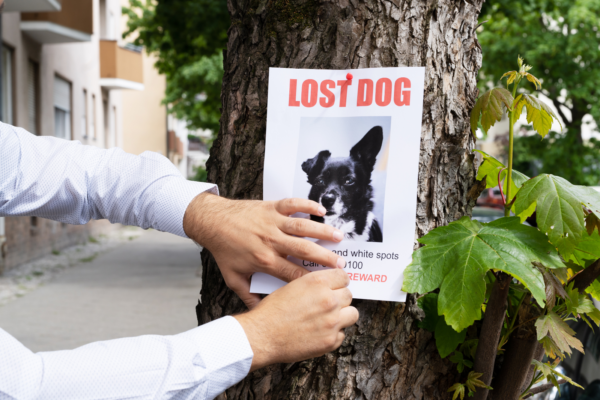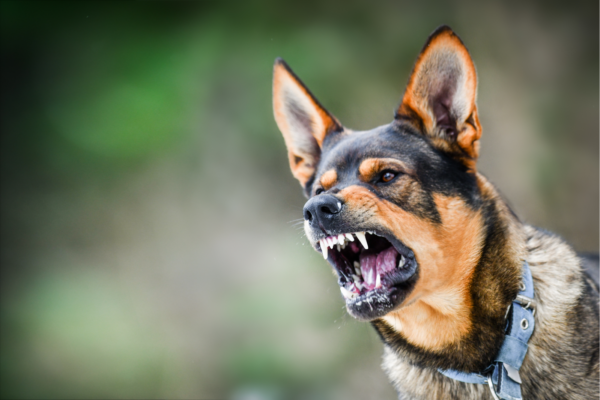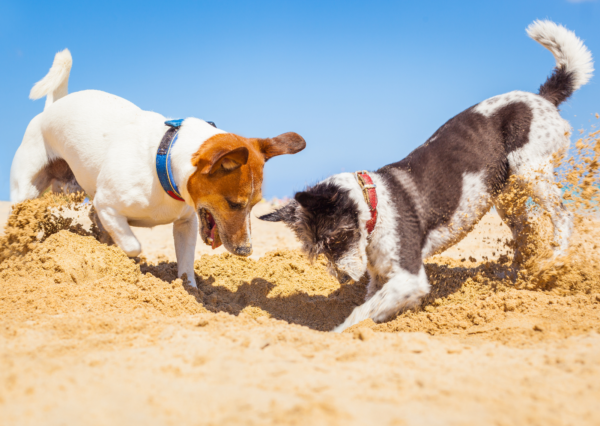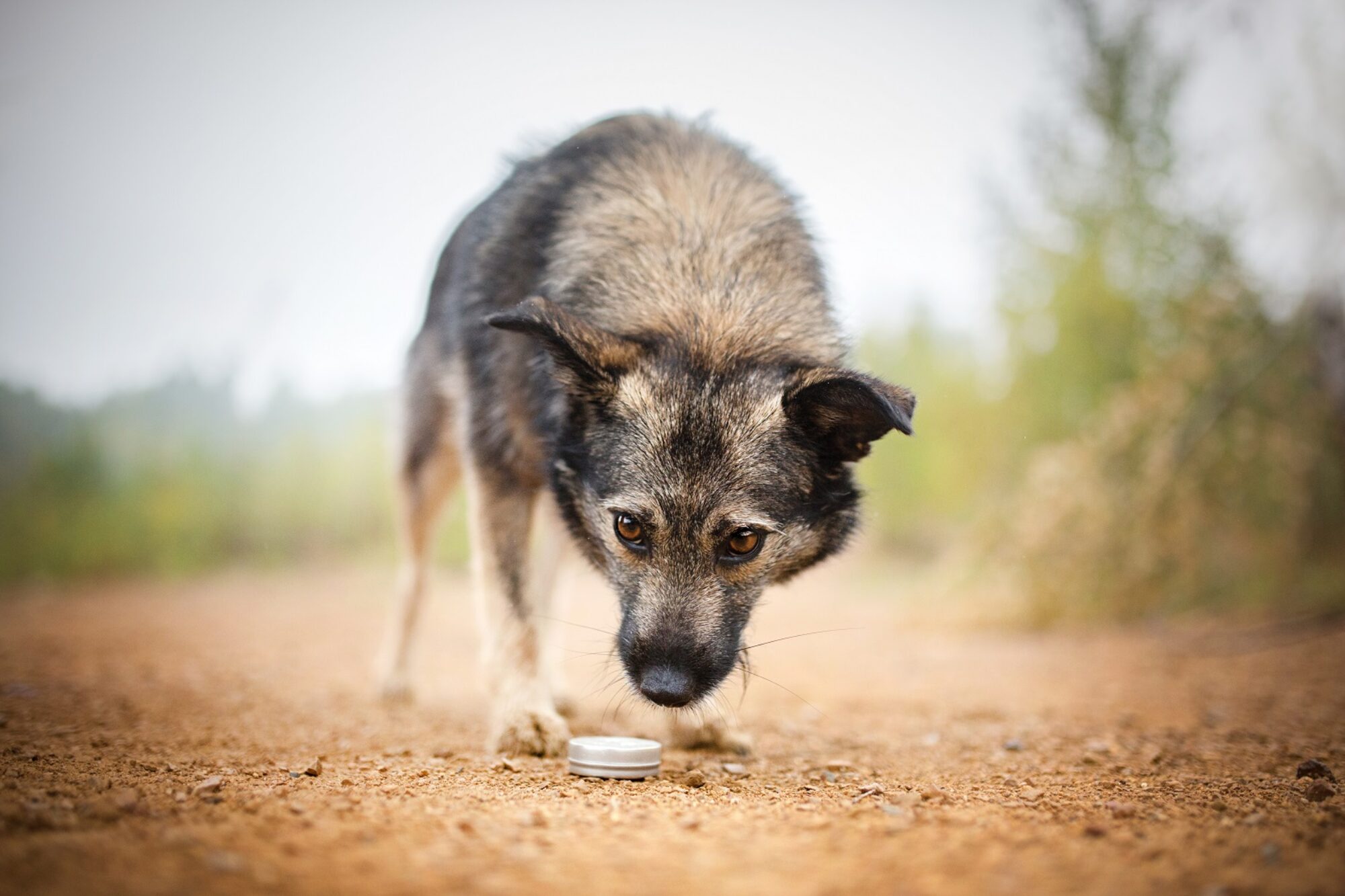Dog Nosework — what is it and how to start?
Although they share a thousand-year-old coexistence, men and dogs orient their interests in the world in a substantially different way.
Nosework for dogs
Imagine you’re in Time Square and you’re walking along with your dog. You will be attracted by the lights on the advertising signs, the shop windows, the colorful taxis, the myriad of faces that run past you. You will find yourself visually overloaded with information. Unlike you, your dog will be attracted by every smell, other dogs, cats, mice, food and spices. The myriad of people walking beside you will be a river of smells for him.
The world of dogs exists in a substantially different way from that of humans. Our dogs are not interested in looking in the mirror in the morning, they are not interested in the shop window with the goods on sale, they are not interested in the new dress of their neighbour. But our four-legged friend will be extremely interested in the smell coming out of the butcher’s shop, the smell flags of other males, the female next door just went into heat. What the dog perceive depends mostly on his interest, he is affected only by things with a biological meaning.
Dog’s training: nose work
Experience can also affect what the dog perceive in the environment. For example when the dog smell a dog or a person from distance his reaction (and response) will be based on previous experience with that specific dog or person.
What is perceived in the world also depends on the training received: a dog’s training history can change what stimuli the dog chooses to pay attention to. Let’s think about cocaine. I’m sure most of our dogs have smelled that smell at least once during the walk, but the reaction to that scent of our pet will be completely different from the reaction of a narcotic detection dog.
What is nosework for dogs?
So the first problem that is faced by anyone who decides to train a dog to search for people or detection is the difficulty in defining what they are working on.
According to the dictionary odor is what stimulates the olfactory organ and a sensation derived from the stimulation of that organ. So how to start nose work training?
Detection is an activity that involves the use of a dog trained to detect the presence of certain odors and warn its handler when the dog found them. Very often this activity is improperly referred to as “search for hidden substances”. In reality the detection dog is not only trained to detect concealed substances (such as drugs, explosive material, prison cells, etc.) but can also be trained to detect the smell of mold, insects, faecal pellets of species of interest, etc..
Potentially anything that emits an odor for which the dog has receptors can be detected by the dog, even in minimal concentrations.
Detection: beyond operational employment
Detection can also be an excellent activity to be carried out at a recreational and educational level: it is better known as nose work, scent game and other more or less registered as a trademark.
Regardless of the name, these are different ways of understanding the same discipline: scent detection. Nosework for dogs is like scent detection.
In the detection that I deal with, regardless of whether it is a professional or recreational activity, I teach the dog to memorize a list of scents and search for them in a variety of environments and then alert me of their presence once detected.
What is a fundamental ability of the professional dog also becomes a strong point for detection as a recreational discipline: the dog socializes with a wide variety of environments and situations.
Television series such as “Airport Security” have made the work of detection dogs known to the general public, underlining their importance also in the “bio-security” sector, showing K9 units involved in the search of prohibited food and other organic products whose importation is illegal, but, at least in my country, these are always activities of the police forces.
I am sure that anyone in our class has at least once in their life met a dog searching for drugs at the exit of a train station or a dog searching for explosives in action before a concert.
I receive many requests every day from enthusiastic aspiring dog handlers who ask me to start a detection dog handler training course: the most frequent requests relate to explosive or narcotic detection training.
Nose work dog training
Please take time, before you choose on which substance you want to train on, to think about the actual usefulness of this training for you as future handler. Usually, when the would-be handler is not part of a public administration or is not a security guard, I try to make him think about the real usefulness of training a dog as a civilian to search for these substances, not only because of the limited possibilities of operational use but also because of problems related to the possession of substances.
There are products on the market that simulate the smell of drugs or explosives but, except for a few cases, the reliability of dogs trained on these pseudo-scents is lower than that of dogs prepared on real substances. There is scientific evidence on this, but this discussion will be the subject of another lecture, so I will not go into detail.
Detection is not limited to narcotic or explosive or human remains or mobile phones in prison.
There are areas where the dog’s sense of smell can be extremely useful and which are not reserved for security professionals, in particular pest control, wildlife monitoring and the agri-food sector. The detection dog can in fact be trained to detect the presence of bedbugs, mold, invasive species, plant diseases, faecal pellets of species of interest and other products of animal origin. That is why nosework can be a very useful skill of our dog.
In 2016, for example, I was involved in an interesting project with the Italian Kennel Club concerning training of dogs for the monitoring of the Italian hare by detecting the presence of faecal pellets of the target species and I am currently work with the Italian Kennel Club for training dogs able to detect wild boar carcasses due to “suine fever” emergency.
Since 2018 I am following a special project concerning dogs able to detect poisoned meat in public area or in forests. This emergency is now widespread throughout the country and their rapid localization allows timely reporting to the authorities ensuring the safety of people, dogs and wild animals.
Nosework training and quarantine
Unfortunately, Europe is going through a period of crisis because of Covid-19. This situation forces us to stay in our homes and change most of our habits. But one thing does not change: the enthusiasm of our dogs to interact with us. Nosework can be a fun activity to do together with our four-legged friends. So, what is nosework for dogs and how start training? Let’s see.
How to start nose work training? It doesn’t matter if your dog is young or old, lazy or dynamic. If you have a garden or live in a studio apartment. The only limit to the possibilities of doing nosework at home comes from your imagination.
Nose work dog training in progress! For dogs who love food you can start by putting juicy bites in a case and hide the case around the house: initially your dog will see all the preparation and will be able to smell the case and see you go and hide it. With experience you can prepare more and more complex search scenarios by reducing the amount of food inside the pouch and without your dog seeing you: at your “Search” signal your dog will be able to search for his pouch. By putting the food in the box, the “hunt” becomes collaborative: your dog will find the box and bring it back to you to share “the prey” with you. For dogs who love to play you can do the same exercise but hiding the dog’s favourite game. It’s the best way to teach nosework!
When your dog masters this type of exercise you can do the same thing but by lining up different objects each containing a different smell and rewarding the dog only when he gets the right smell!
See also other posts:
June 30, 2023

Get Your Lost Dog Back Home Quickly: Follow These 12 Tips for Success
Vacations favor more frequent and longer walks with our furry friends. We travel, visit new places. Summer makes us loosen our brakes and allow our…
June 30, 2023

Managing Aggressive Dog Behavior: Tips for Peaceful Living
Living with an aggressive dog may seem challenging, but it can be peaceful and manageable with the right approach. One key aspect is to remain…
June 30, 2023

Unlocking the Secret to Successful Puppy Socialization: Quality over Quantity
Today, although the topic is very important, I will keep it brief. Socialization is a topic that could fill books or scientific papers. However, today…

